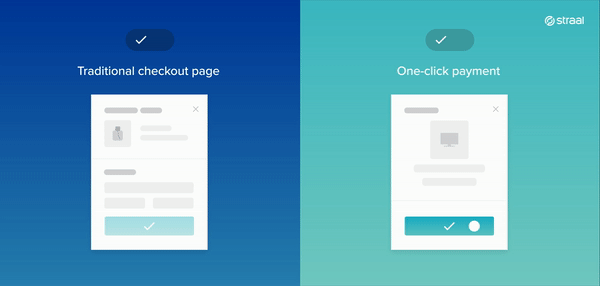The insatiable desire to have everything we want in no time is stronger than ever in today’s technology-driven world. Instant gratification is now said to permeate even the least expected levels of our lives. The BBC almost pronounced the death of great song intros – so impatient have we become that we no longer want to wait for the vocal to kick in. The world of e-commerce has likewise been affected by this phenomenon. Customers want the same-day delivery, instant payments and captivating imagery on the website. But has our attention span truly been so alarmingly impaired as the media report? If so, how come would you enjoy uninterrupted hours of watching Netflix over the weekend? We’re no doubt more economical and selective when it comes to allocating our attention. Your customers won’t wait or engage in cumbersome processes to get your products, especially if your competitors are able to provide the service faster.

So how do you attune your online business to the modern customer? The answer is simple. Do not put your customers on hold. I’ve got a quick read for you – a handful of numbers to help you get the gravity of the situation. Without further ado, let me present you with the mathematics of instant e-commerce. Lean on these statistics to put your business in the fast lane!
Page load speed
Time runs faster for online retailers! 1.8 to 2.7 seconds is an estimated time your website can take to load if you want to maximize the conversion rate on whatever device. Terrifying? Not to be ignored for sure. A recent Google study found that 53% of mobile site users leave a page that loads longer than three seconds. The research also shows that sites that load in 5 seconds have 25% higher ad viewability, 70% longer average sessions and 35% lower bounce rates as compared to sites that take 19 seconds to load.
If your online business was making $100,000 per day, a one-second page delay would most likely cost it $2.5 million in lost sales per annum. To put it into perspective: 1 additional second of load time would cost Amazon $1.6 billion in sales per year. I believe these numbers speak for themselves. A slow website will awash you with missed opportunities. Worse still, you won’t even be aware what door they could have opened for you.
Shopping cart abandonment
A two-second delay in the transaction process is likely to increase shopping cart abandonment rate to 87%. Additionally, the checkout form should ideally have from 12-14 form elements. Otherwise, the process becomes overly lengthy and complicated. These numbers should lead you to a sobering conclusion that you should do away with all excessive steps or even the necessity of signing in. Do not barricade your business from your customers. If, for some reason, the process needs to take a little longer, my advice is to include a progress bar – an indicator that a reward is heading the customer’s way.
Subscription initiation
According to the research by PYMNTS.com, initiating a subscription to retailers that they labelled as top merchants lasts around 2-3 minutes – 135.3 seconds to be more specific. 20 seconds less than in the case of an average merchant. In general, the average time of subscription time gets longer and amounts to 156.4, which is 49.2 seconds more than in Q3 of 2017. A trade-off between security and the customer experience is, therefore, key and since neither of them can be compromised, it is imperative to make sure we get the best solution providers involved in the process.
A speedy duel
What would happen if we compared the number of purchases made by a user whose credit card is saved with those of a user who has to enter their payment details each time. We took the challenge and measured it ourselves. The results? See them for yourself below.

Here’s the key takeaway from my today’s note. Technology has apparently hardwired us for a manic pursuit of instant satisfaction. If your business adds exceptional value to your customers’ lives, do not make it difficult to access. Given the overwhelming power of “now”, retailers need to remember that great quality does not always magically illuminate the road to success and prosperity in the modern-day e-commerce realm. It needs to be served well, too.







